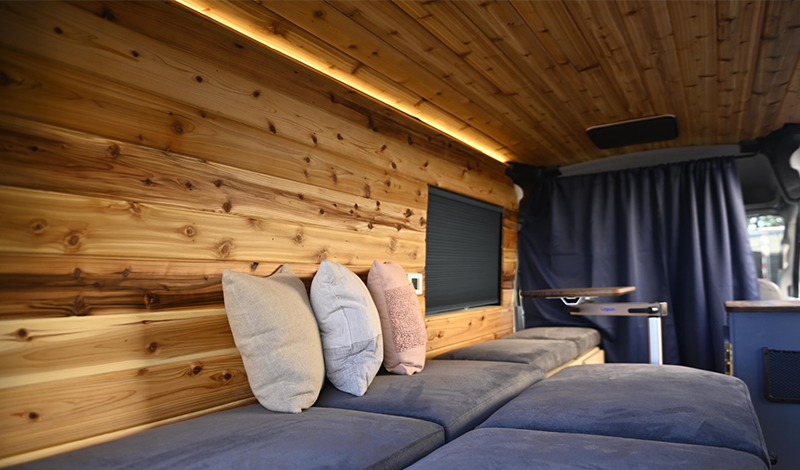Embracing a New Vision: A Look at the Nomadic Lifestyle Unoma Haus Offers
Unoma800X470.png

For Vaughn Dabney, Unoma Haus embodies more than a business or a trend. He views the van conversion company as an avenue to building a network of community spaces for adventure seekers wanting to experience a nomadic lifestyle.
Beyond the van conversions and rentals he currently offers, Dabney hopes to design an app to show fellow nomadic travelers safe places to stay, build container homes, and eventually develop micro-communities for people to come and park for a night.
“The ability to connect with other nomadic travelers through an app or community is a huge thing,” he said. “It closes the gap in terms of our geographical distance between each other, which doesn't allow us to connect. By creating communities, as many as we can, we bridge that gap.”
Homeownership in recent years remains increasingly unattainable and has led many in the U.S. to seek out alternative housing options. This generational shift in homeownership also exists across racial lines. According to research conducted by the American Community Survey (ACS) in 2019, the white homeownership rate is 71% higher than the Black homeownership rate. These trends, coupled with the aftershocks of the COVID-19 pandemic and the rise of remote work, drove people to seek more cost-effective options, such as living in a van.
On top of lower costs, the ability to travel and schedule your day on your own terms offers new opportunities for people to live and spend their time.
“The value of time is something that no one can ever pay me for,” Dabney said. “And the ability to go visit family whenever I want. To go have lunch with someone in the middle of the day without worrying about coming back to work. That value of time is so important to me. I'll make whatever money I make myself without working for a company, because I know that I control my time, and that is the most precious thing.”
Dabney is no stranger to starting his own business. As an entrepreneur from the time he was in middle school, he has sold custom t-shirts and candles and later started a software company. In September 2020, Dabney first established Unoma Haus and has completed six different vans for customers, along with releasing a rental option. Despite his experience, the COVID-19 pandemic presented new challenges.
“The biggest challenge throughout the pandemic was actually just trying to find people to help me build this,” he explained. “I only found one person throughout that second year to assist me, but I wasn't able to find many people who felt comfortable. Also, I needed to feel comfortable in working in such a small space together.”
Currently, Dabney is focused on raising capital to create more jobs, potentially move to another state with more flexible real estate laws, and grow the company.
The Coalition to Back Black Businesses (CBBB) – a multi-year initiative founded in partnership with the U.S. Chamber of Commerce Foundation, American Express, and four leading national Black business organizations – provides such opportunities for success. Since its launch, the CBBB has distributed $5,000 grants to more than 1,000 Black small business owners across the country and continues to offer resources to help business owners thrive.
The funding has allowed Dabney, as a 2021 grantee, to continue to pursue his mission to redefine what home means. His ultimate hope is to show others in his community that this lifestyle is possible and inspire the next generation to envision a new path.
“We did a pop-up with two of our vans that we've built, and we just had people come in, and just sit down, and feel it out, and ask questions,” he said. “Showing up in the community with what I'm doing, and having people get a hands-on approach and feel, and heuristic approach to what we're doing. That's powerful. Especially when we're talking about children in schools and students. I want them to ask all the questions and be curious about the vans. And so next time they see a van, they're like, ‘Oh, that could be a home. I can make that into a livable space,’ or whatever it is. But the shift in perception and mindset is what I'm after.”